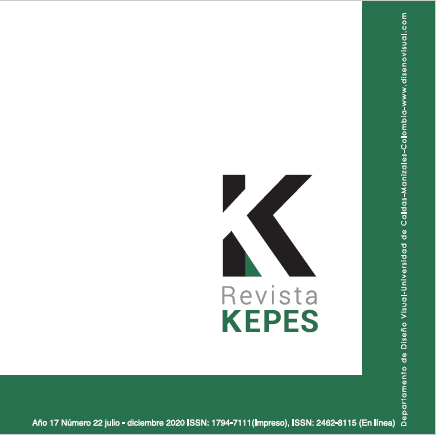Authors
Abstract
This article aims to present a methodological exercise using photography, autobiography and autoethnography as useful tools in the framework of overcoming traumatic life processes. Sontag and Barthes, among other authors, whose contributions throughout the history and evolution of photographic art have been fundamental, offer a hermeneutical-interpretative framework: the studium/punctum concepts proposed by Barthes and the approach to the experience of the photographic fact of Sontag are assumed by the author during the process. The results presented are a series of auto-ethnographic narratives that were used as input in the process of creating the work Myths: The Square of Time.
References
Blanco, M. (2017). Investigación Narrativa y Autoetnografía: Semejanzas y Diferencias. Investigación Cualitativa, 2(1), 66-80. http://dx.doi.org/10.23935/2016/01037
Blanco, M. (2012). ¿Autobiografía o autoetnografía? Desacatos, (38), 169-178. DOI: https://doi.org/10.29340/38.278
Camarero, J. (2011). Autobiografía: escritura y existencia. Barcelona, España: Anthropos Editorial.
Cartier-Bresson, H. (2014). Ver es un todo. Entrevistas y conversaciones 1951-1998. Barcelona, España: Gustavo Gili.
Chase, S. (2005). Narrative inquiry: Still a field in the making. En N. Denzin y Y. Lincoln (Eds.) Handbook of qualitative research. Thousand Oaks, CA: Sage.
Colorado, O. (17 de febrero de 2013). Fotografía intimista: el documento personal [Mensaje en un blog]. Recuperado de https://oscarenfotos.com/2013/02/17/fotografia-intimista-el-documento-
personal/
Douglas, K. & Carless, D. (2013). A History of Autoethnographic Inquiry. En Holman Jones, S., Adams, T., Ellis, C. (Eds.), Handbook of Autoethnography (pp. 84-106). Recuperado de https://www.routledgehandbooks.com/doi/10.4324/9781315427812.ch2
Dubé, G. (2017). La Auto-etnografía, un Método de Investigación Inclusivo. Visión Docente Con-Ciencia, 15 (83).
Fontcuberta, J. (2016). La furia de las imágenes. Barcelona, España: Galaxia Gutenberg.
Guerrero Muñoz, J. (2014). El valor de la auto-etnografía como fuente para la investigación social: del método a la narrativa. Azarbe, (3), 237-242. Recuperado de http://revistas.um.es/azarbe/article/view/198691/161851
Holman, S., Adams, T. & Ellis, C. (2015). Handbook of autoethnography. Walnut Creek, CA: Left Coast Press.
Latz, A. (2017). Photovoice research in education and beyond: A practical guide from theory to exhibition. Nueva York, NY: Routledge.
Leal Acosta, M. y Ruiz Soto, M. (2010). El relato autobiográfico como apertura a la reinterpretación. En Acosta, C. y Alzate, C. (Eds.), Relatos Autobiográficos y otras formas del yo (pp. 85-95). Bogotá, Colombia: Siglo del Hombre Editores.
Losilla, C. (2008). Al borde del abismo, desde la distancia. Notas sobre la enfermedad, el dolor y la muerte en la (auto)biografía filmada. En Martín Gutiérrez, G. (Eds.), Cineastas frente al espejo (pp. 121-135). Madrid, España: T&B Editores.
Malinowski, B. (1982). Magia, ciencia, religión. Barcelona, España: Ariel.
Perret, J. (2015). Dévisager les apparences. La coleur des jours, pp. 38-39. No.16.
Perret, J. (2016). Et souviens-toi que je t’attends. La coleur des jours, p. 30-31. No.19
Perret, J. (2017). Pour un ange. La coleur des jours, pp. 38-39. No.22.
Russotto, M. (2010) Vidas malditas, vidas ingenuas, vidas artísticas. En Acosta, C. y Alzate, C. (Eds.), Relatos Autobiográficos y otras formas del yo (pp. 249-267). Bogotá, Colombia: Siglo del Hombre Editores.
Sontag, S. (1981). Sobre la fotografía. Barcelona, España: Edhasa.

 pdf (Español (España))
pdf (Español (España))
 FLIP
FLIP






















